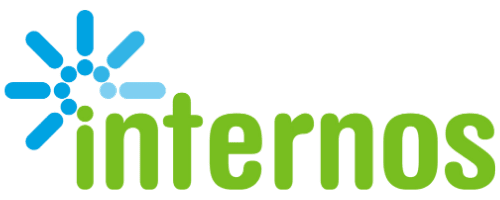
Tech jargon is akin to a revolving door: Just when you get the hang of one term, the door rotates and something new pops in that needs to be learned. Keeping up with IT jargon and terminology is a constant process. IoB? Distributed cloud? Open source? Knowing what the latest terms mean is important, especially when you talk with your IT service provider, such as Internos, or other leaders and prospective vendors. After all, if you are not all using the same definition, you really are not on the same page.
We’ve gathered more recent IT terms and their definitions to help you talk the talk like a CIO.
Current Tech Jargon and IT Terms
- The internet of behaviors (IoB): If you’ve heard of the IoT (internet of things) know that IoB is a bridge to it. It focuses on people identification, data integration and behavioral mapping. This phrase will be a top trend in 2023. You might already have some experience with it with an app on your smartphone that tracks sleep patterns, blood pressure, heart rates, etc. It takes advantage of the ‘‘data dust’ from an IoB system or setup and then alerts the user about harmful health situations. Some of them even suggest behavior changes to improve your overall well being.
- Anywhere operations: “Work from home” and “remote work” have been coming for many years, but the COVID-19 pandemic propelled the concept to the front of the line. Companies had to adjust quickly to enable work from anywhere if they wanted to continue their business. They couldn’t use a short-term band-aid approach, but had to change their IT infrastructure, processes and procedures to position their companies to thrive in a work from anywhere model. Anywhere operations means just that. By using video conferencing, virtual whiteboarding, Microsoft Teams and other tools for effective and secure work spaces, employees can work anywhere in the world.
- Business resiliency: An interruption such as a natural disaster or cyber attack can ruin a company unless it has backup and redundancy plans to counter that interruption. Couple the backup plan with a redundancy plan and you have a strong foundation for business resilience.
- Distributed cloud: By extracting detailed information from visual images, distributed cloud helps companies handle challenges of complying with country- and industry-specific data privacy regulations. It can also be used to provide IT services to employees and end-users who are connected to the company virtually. This service allows you to use a single control plane to manage multiple different locations in a public cloud infrastructure.
- Open source: This began as a software term meaning that the code was publicly available to access, modify and publish. Now, open source refers to almost any product, service or process that can be shared and improved.
- Quantum computing: This is not about traveling through your own lifetime with nothing but a hologram pal to keep you sane. It’s about computers that use quantum bits (qubits) which are much smaller units than the standard bits (binary digits). In theory, quantum computing will be able to solve more complex problems and handle enormous data sets — all within a fraction of the time required by current computers. How much data are we talking about? Think of NASA and all the information it accumulates about the universe. The agency is currently testing quantum computing.
Retiring Tech Jargon and IT Terms
- Agile: So, there used to be a traditional development/project management approach (called “waterfall”) and the newer (better) agile approach. Today, if you’re not agile, you’re going to be out of business. So the term is going the way of the “soft tissue.” (Anyone ever heard of a hard tissue?)
- DevOps: True DevOps involves the tight collaboration between software development and operations. But the term is so often used in the wrong context that people are using it less and less.
- Artificial intelligence (AI): AI is making way for machine learning (ML), which means intelligent software that improves from training data.
- Big data: Grossly overused, big data is a subjective term. Your company might consider 60 gigabytes to be big but another might be thinking you mean 60 terabytes. This nonspecific phrase is being replaced with the exact numbers of data science and analytics such as with subterms like data lakes and data marts.
- Disruptive technologies: Again, an incorrect term. As one CIO remarked, “there is no such thing as disruptive technologies because the whole point of disruption is that you don’t see it coming.”
- Digital transformation: If you ask any five CIOs what that means, you will get five different answers. That’s the main reason it is falling out of use, in favor of more specific (and well-defined) IT terminology.
The one thing that will never change is that IT terminology will continue to evolve and adapt as technology advances. At Internos we stay on top of new technologies, without drowning you in all the IT jargon.
Not a client? No worries. Just contact us or book a free no-obligation meeting, virtual or in person.

